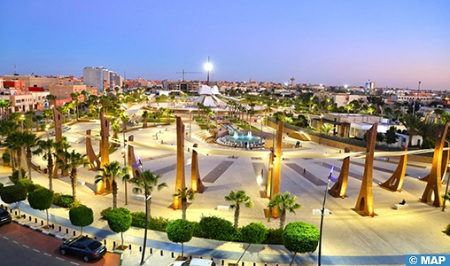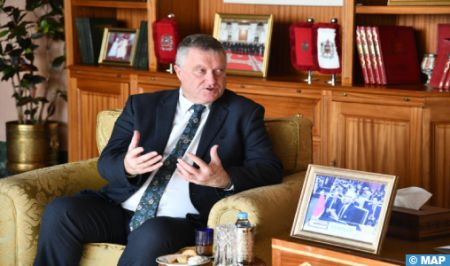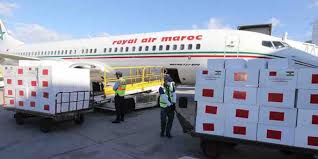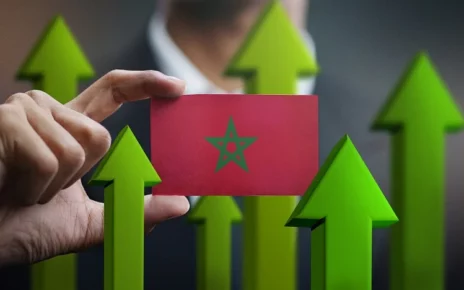A delegation of permanent representatives to the United Nations Office at Geneva (UNOG) embarked Tuesday on a visit to Laayoune, to get first-hand information about the developmental strides in the Laayoune-Sakia El Hamra region. The delegation engaged in a series of meetings with local authorities, elected officials, and members of the Laâyoune-Sakia El Hamra Regional Human Rights Commission.
During a meeting with the Wali of the Laâyoune-Sakia El Hamra region, Abdeslam Bekrate, the delegation was briefed on the significant efforts undertaken by the state. The discussions covered various programs and projects aimed at fostering development in accordance with the directives of King Mohammed VI.
The delegation, consisting of ambassadors of Senegal, Gabon, Guinea, Equatorial Guinea, Sierra Leone, UAE, Yemen, Bahrain, Cabo Verde, Comoros, The Gambia, Zambia, Eswatini, and Malawi learned about Morocco’s advancements in political, economic, social, and legal domains, and the measures taken under the new development model for the Southern Provinces, initiated by King Mohammed VI in 2015.
Visiting the Laayoune-Sakia El Hamra Regional Council headquarters, the delegation members acquainted themselves with the positive impacts of projects implemented as part of the new development model. Presentations showcased the region’s potential and infrastructure in economic and social sectors, and the sustainable socio-economic development achieved in the region.
In a meeting with Laayoune Municipal Council President Moulay Hamdi Ould Errachid, the delegation received a detailed presentation on the city’s projects across various fields. Ould Errachid reiterated the Council’s commitment to the autonomy plan as a realistic solution with consistent international support which ensures the dignity, freedom, and rights of the local population. Historical ties between Sahrawi tribes and the sultans of Morocco were also emphasized.
The delegation’s visit in Laâyoune will continue with meetings with the Regional Investment Center director, Sahrawi tribal leaders, civil society members, and on-site visits to various development projects, including the university campus, the city of trades and skills, the Phosboucraa Foundation, and the African Institute for Sustainable Agriculture Research (ASARI), among others.



